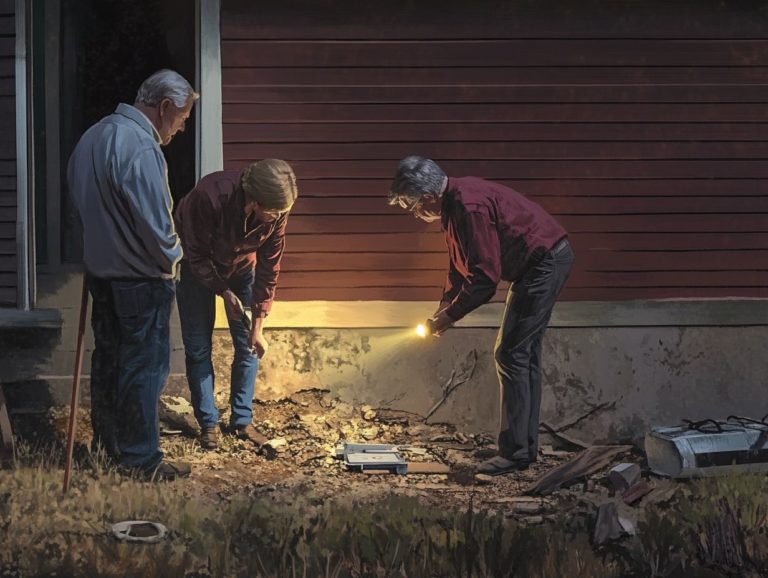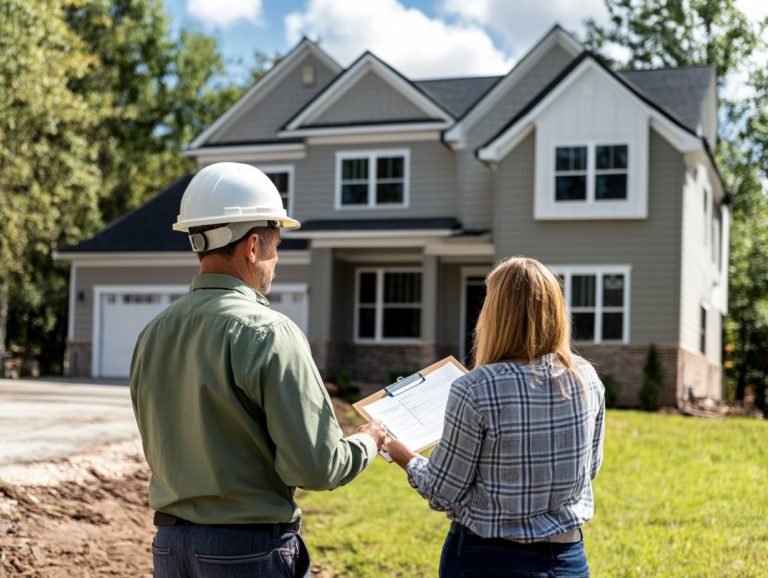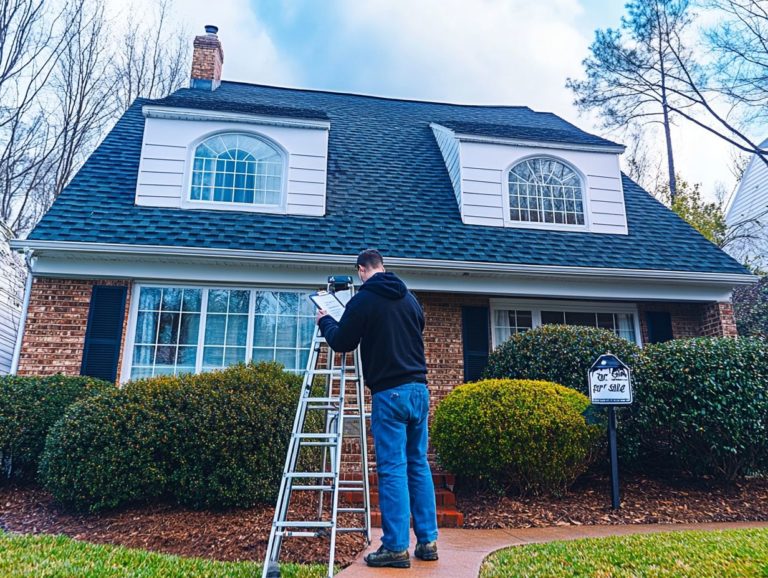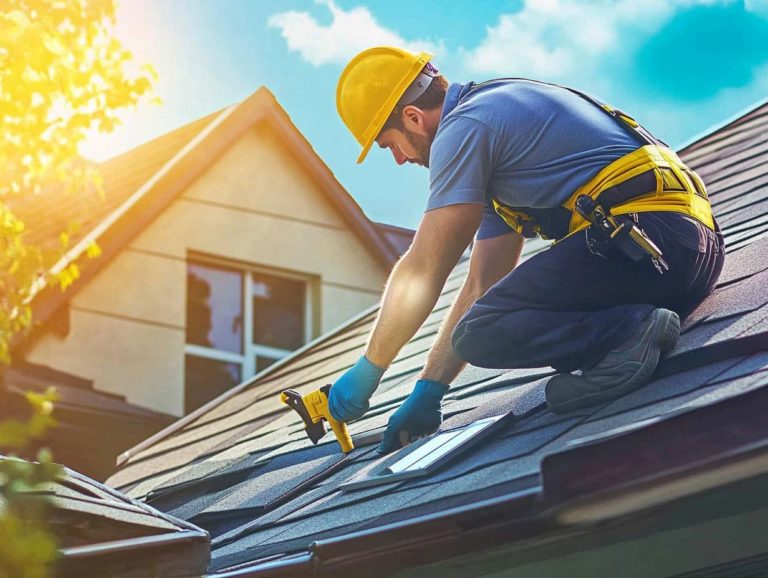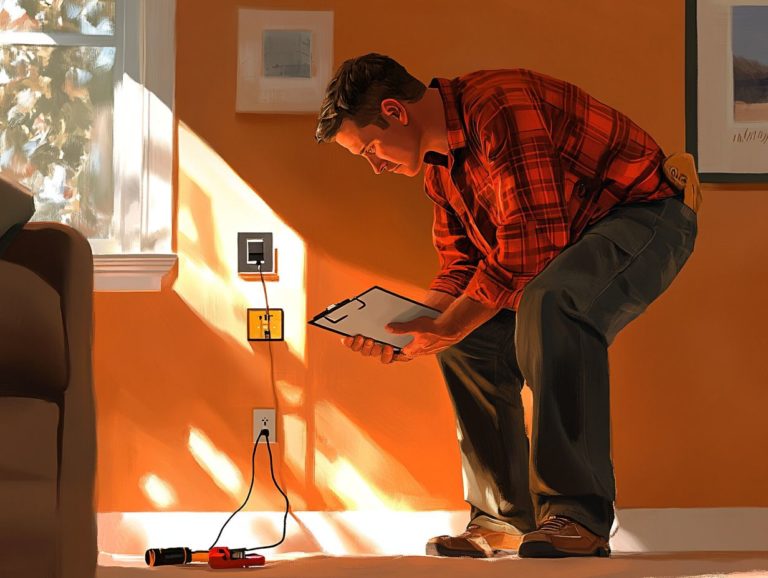Understanding the Home Inspection Timeline
When you’re in the market to buy or sell a home, understanding the importance of home inspections is essential. These inspections are your best defense against potential issues that could significantly impact your investment.
This guide explores why home inspections matter, when to schedule them, and what the entire process involves.
From common areas that are inspected to tips on interpreting the findings, you ll discover everything you need to navigate your home inspection journey with confidence and clarity.
Contents
- Essential Tips for Home Inspections:
- The Importance of Home Inspections
- When to Schedule a Home Inspection
- The Home Inspection Process
- What to Expect During a Home Inspection
- Interpreting the Home Inspection Report
- Addressing Issues Found in the Inspection
- Re-inspection and Final Steps
- Frequently Asked Questions
Essential Tips for Home Inspections:
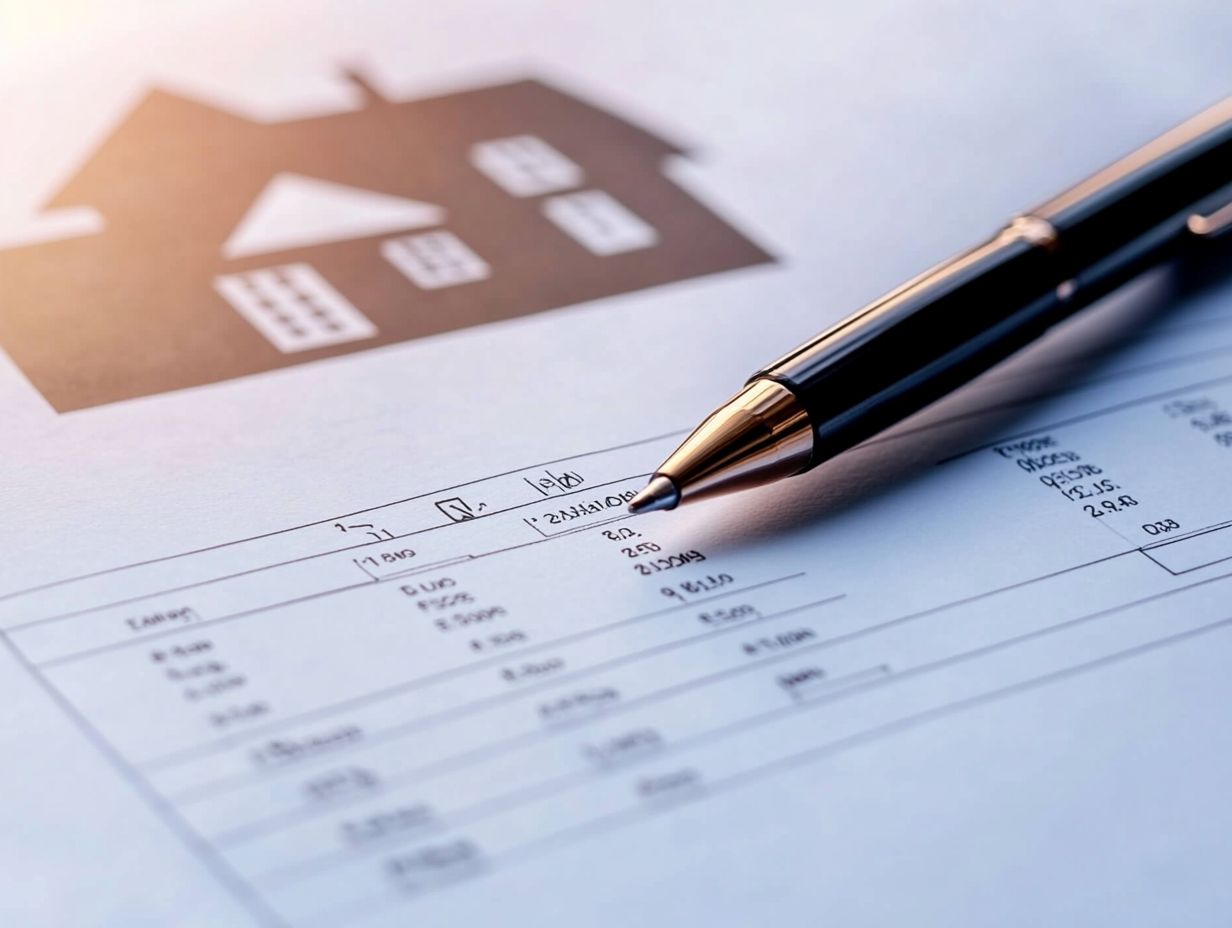
Home inspections are your best defense against potential issues with a property before purchasing, saving you time, money, and stress in the long run.
Schedule your home inspection during the option period of a real estate transaction to allow enough time to address any issues found and negotiate repairs with the seller. Additionally, understanding the mortgage application timeline can help streamline the process.
A thorough home inspection includes a detailed report on the condition of the house, covering common areas and components, along with recommendations for addressing any problems.
The Importance of Home Inspections
Home inspections are an important part of your home buying journey. They provide you with comprehensive insight into the property’s condition.
Enlisting an experienced inspector for a thorough home inspection can reveal hidden concerns that might otherwise slip through the cracks think structural defects, plumbing problems, or safety hazards.
With a detailed inspection report in hand, you can confidently approach your purchase agreement, negotiate necessary repairs, and understand the long-term maintenance implications of your new property.
Why Home Inspections are Necessary
Home inspections are essential for identifying potential issues and safety concerns that could affect the well-being of occupants. These evaluations are critical for uncovering significant defects in vital systems like plumbing, electrical, and roofing, which, if overlooked, could lead to costly repairs later on.
An effective inspection checklist serves as your roadmap, offering a structured approach to assessing the home s condition. Knowing about any repairs that may be needed soon lets you plan your budget accordingly, helping you avoid unexpected expenses later.
Ultimately, a thorough home inspection delivers invaluable peace of mind, assuring you of your investment and ensuring a safe haven for you and your family.
When to Schedule a Home Inspection
Scheduling a home inspection is a crucial milestone in your home buying journey. It’s best to arrange it as soon as your purchase agreement is in place, as understanding the need for home inspections can help you make informed decisions.
This typically happens right after your offer is accepted and before the final closing date, giving you enough time for a thorough evaluation and any necessary negotiations based on the inspection findings.
The sooner you schedule your inspection, the better prepared you ll be to negotiate any issues!
By following a well-structured inspection timeline, you can effectively utilize the results to discuss serious issues or concerns with the seller’s agent, all while still within the inspection contingency period (the time during which you can cancel the purchase if the inspection reveals serious issues). For more insights, check out understanding the importance of home inspections.
Best Timeframe for a Home Inspection
The ideal timeframe for your home inspection typically falls within the first week of having an accepted offer. This allows you ample opportunity to address any findings, making it crucial to understand the necessity of home inspections without feeling rushed.
This prompt timeline is essential, as it enables you to engage in timely negotiations, including discussions about necessary repairs or potential adjustments to the sale price based on the home inspector’s role and the inspection results.
Although home inspections usually take just a few hours to complete, processing the findings and engaging in negotiation discussions can take several days. Therefore, knowing when to schedule your home inspection is crucial for early action.
Having a buyer’s agent who excels in navigating this process can significantly enhance your experience. They can coordinate the inspection schedule, communicate seamlessly with the seller s agent, and facilitate follow-up actions with contractors if repairs are needed.
The Home Inspection Process
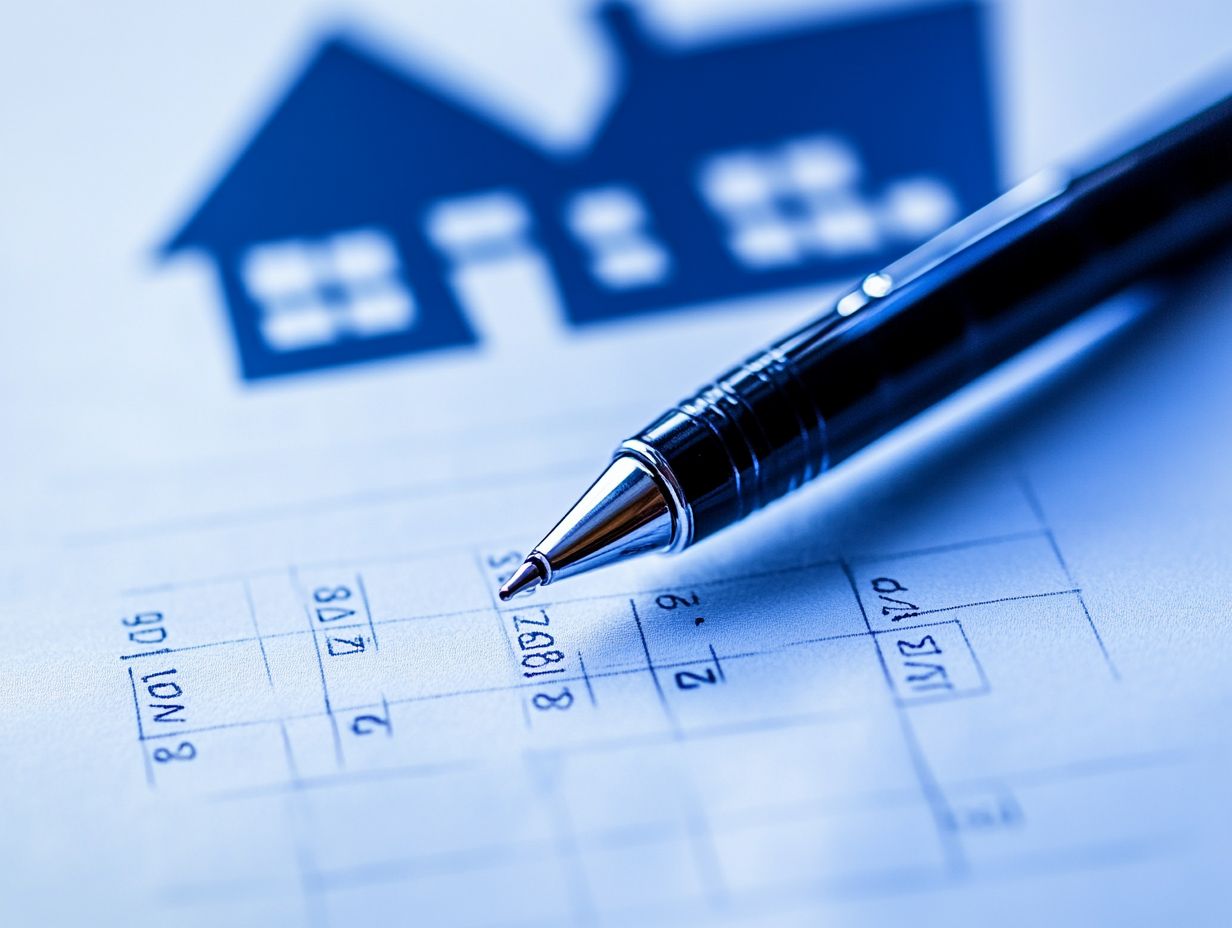
The home inspection process entails a careful check of a property’s major systems and structural components. This evaluation is carried out by a seasoned inspector using a comprehensive checklist.
This thorough examination covers essential areas, including the foundation, roof, HVAC system, plumbing, and electrical systems.
After the inspection, the inspector compiles their findings into a detailed report. This report highlights any potential issues and recommended repairs. The information can profoundly impact your decisions as a buyer, guiding you toward a well-informed investment.
Step-by-Step Guide
Following a structured, step-by-step guide is essential for you and the inspector during the home inspection process. This ensures that all critical systems are thoroughly evaluated.
This careful approach begins with scheduling the inspection promptly after your offer is accepted. To ensure you’re well-prepared, it’s important to know what to expect during a home inspection, giving ample time for a comprehensive evaluation.
Be sure to join the inspector and ask questions this is your chance to get all the answers!
During the inspection, it’s crucial to watch for signs of water damage, foundational issues, and electrical safety concerns. These could lead to costly repairs down the line.
Inspectors will dive deep into every detail, ensuring nothing escapes their keen eye!
After this thorough evaluation, you ll receive a detailed report summarizing key findings and recommendations. This report is an invaluable tool for your future negotiations or decision-making.
What to Expect During a Home Inspection
During a home inspection, expect a thorough assessment of common areas and critical components of the property. This ensures you are fully informed about potential safety hazards or structural issues.
An experienced home inspector will meticulously follow an inspection checklist. They will examine various facets of the home, such as the exterior walls, roofing, HVAC system, plumbing, and electrical systems.
This comprehensive process not only uncovers significant defects but also deepens your understanding of the overall condition of the home.
Common Areas and Components Inspected
During a home inspection, you ll find that common areas and components examined include the roof, foundation, plumbing, electrical systems, and HVAC systems. Each of these elements plays a crucial role in the home s overall functionality and safety.
The roof is scrutinized for any signs of damage or wear, as it serves as your first line of defense against the elements. Even minor leaks can lead to serious water damage.
The foundation is assessed for stability, ensuring there are no cracks or shifts that could jeopardize the structure s integrity.
Plumbing systems are thoroughly checked for leaks, corrosion, and potential blockages issues that can quickly disrupt your daily life.
Electrical systems receive attention too. Inspectors focus on outdated wiring or faulty connections that could create fire hazards.
Lastly, HVAC systems are evaluated to confirm their efficiency in providing heating and cooling, along with proper ventilation.
By utilizing a detailed inspection checklist, you can rest assured that none of these critical components will be overlooked. This allows for a comprehensive evaluation of the property s condition.
Interpreting the Home Inspection Report
Interpreting the home inspection report is crucial for you as a buyer. This is necessary to fully grasp the findings and recommendations laid out by the inspector.
A comprehensive report will emphasize critical issues, potential repairs, and essential maintenance. This offers you valuable insights into the property’s overall condition and future upkeep requirements.
By understanding the nuances within the report, you can make informed decisions and skillfully navigate the negotiation process with the seller.
Understanding the Findings and Recommendations
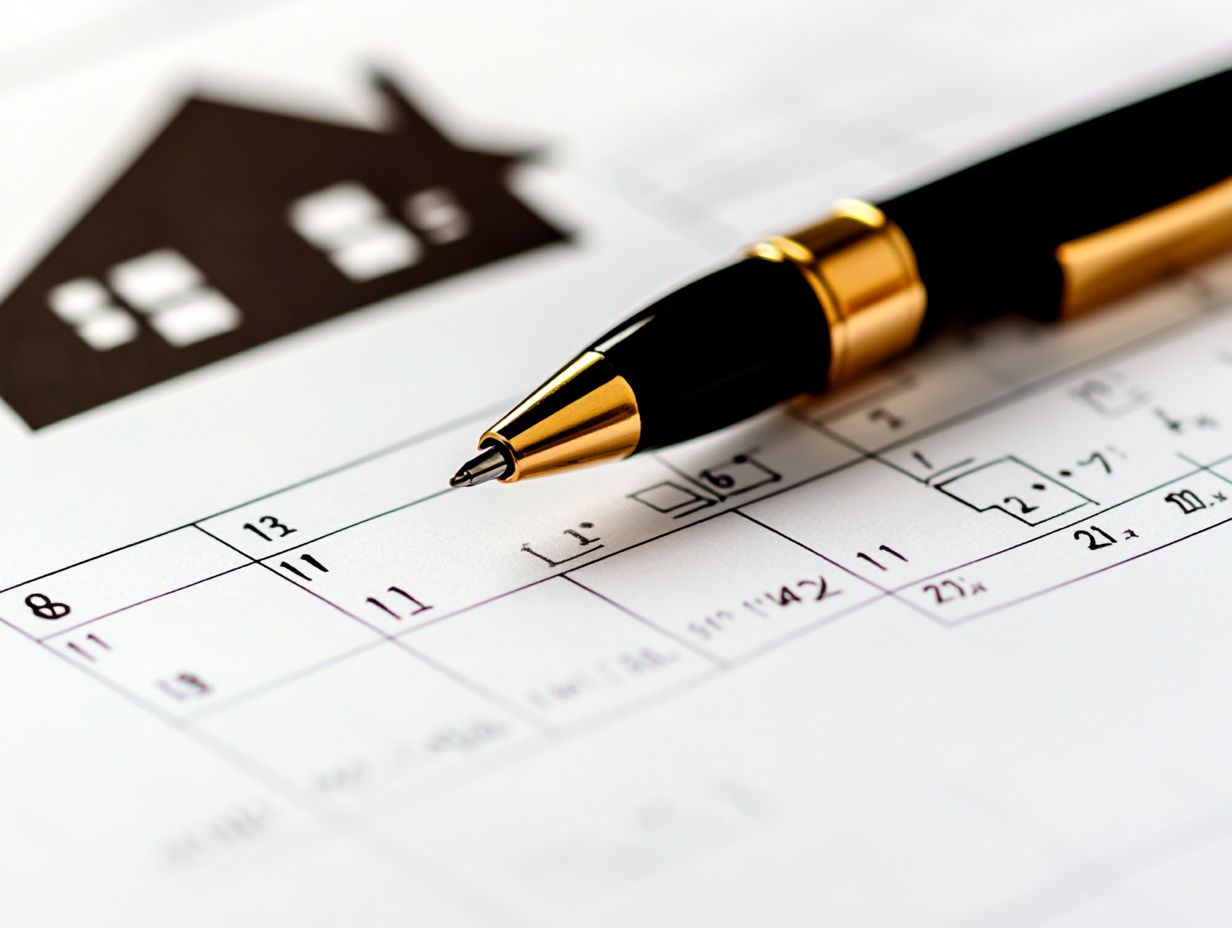
Understanding the findings and recommendations in a home inspection report is essential to assess the condition of your potential new home.
By analyzing these insights, you can uncover issues like safety hazards, structural damage, or outdated electrical systems that may be hidden.
These factors impact the safety of occupants and the long-term value of the property. Pay attention to necessary repairs to avoid complications later on.
A detailed evaluation of the report helps you make informed decisions and negotiate effectively, potentially saving you thousands in unexpected costs.
Addressing Issues Found in the Inspection
Addressing issues found during the inspection is a key part of the home buying journey. This often requires negotiation between you and the seller.
After reviewing the inspection findings, work with your agent to engage the seller’s agent in discussions about repairs. This negotiation may lead to offers that include repair provisions or credits for closing costs, protecting you from future expenses.
Options for Resolving Problems
You have options for addressing issues from requesting repairs to negotiating financial credits. Approach these strategically by weighing repair costs against their impact on the deal.
When negotiating, present inspection results clearly and support your requests with estimates. This strengthens your position and fosters collaboration with sellers.
Consider strategies like setting repair deadlines or adjusting offer prices to benefit both parties. Understanding the negotiation process leads to a smoother transaction and a property that meets your needs.
Re-inspection and Final Steps
Re-inspection is a crucial final step in your home buying journey. It enables you to verify that all issues from the initial inspection report have been resolved.
This step gives you confidence that your new home meets the necessary standards before you finalize the purchase.
Ensuring All Issues Have Been Addressed
Ensuring all issues have been addressed during re-inspection is vital for your home’s long-term condition.
A thorough verification process protects your property s integrity and builds confidence for you and future buyers.
Contractors and inspectors should communicate openly to ensure all deficiencies are resolved and documented. This diligence fosters accountability, resulting in a final report that reflects the quality of the work.
Documenting repairs and updates is invaluable; it serves as a record for future maintenance and can significantly influence your property’s value.
This careful approach emphasizes responsible homeownership and its lasting benefits.
Frequently Asked Questions
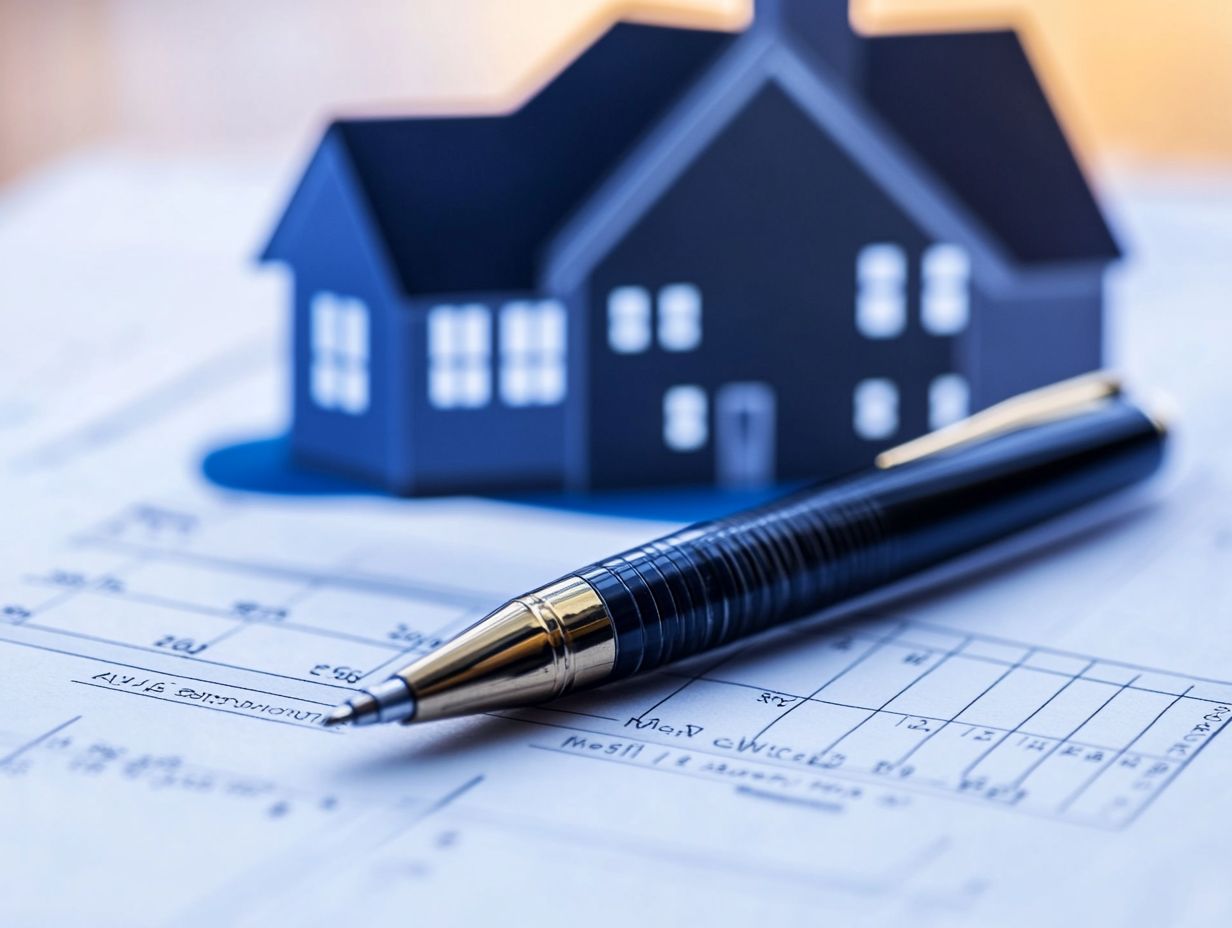
What is the purpose of the home inspection timeline?
The home inspection timeline outlines the steps and deadlines in the inspection process. Understanding this timeline helps both buyers and sellers know what to expect during the process of home inspections.
When does the home inspection typically take place?
The home inspection is usually scheduled after the offer is accepted and before the final purchase agreement is signed. It is a critical step in the homebuying process, and knowing what to expect with a home inspection is essential to ensure you don’t skip this important phase.
Who is responsible for scheduling the home inspection?
The buyer usually schedules the home inspection since they pay for it. However, sellers may choose to schedule it before listing the home.
How long does the home inspection typically take?
A home inspection usually takes about 2-3 hours. The time may vary based on the home’s size and condition.
What is included in a home inspection report?
A home inspection report describes the condition of the home. It highlights issues or defects and may suggest repairs or further evaluations by specialists.
Can the home inspection timeline be extended?
Yes, the timeline can be extended if both the buyer and seller agree. Clear communication about any delays is essential to prevent misunderstandings.

